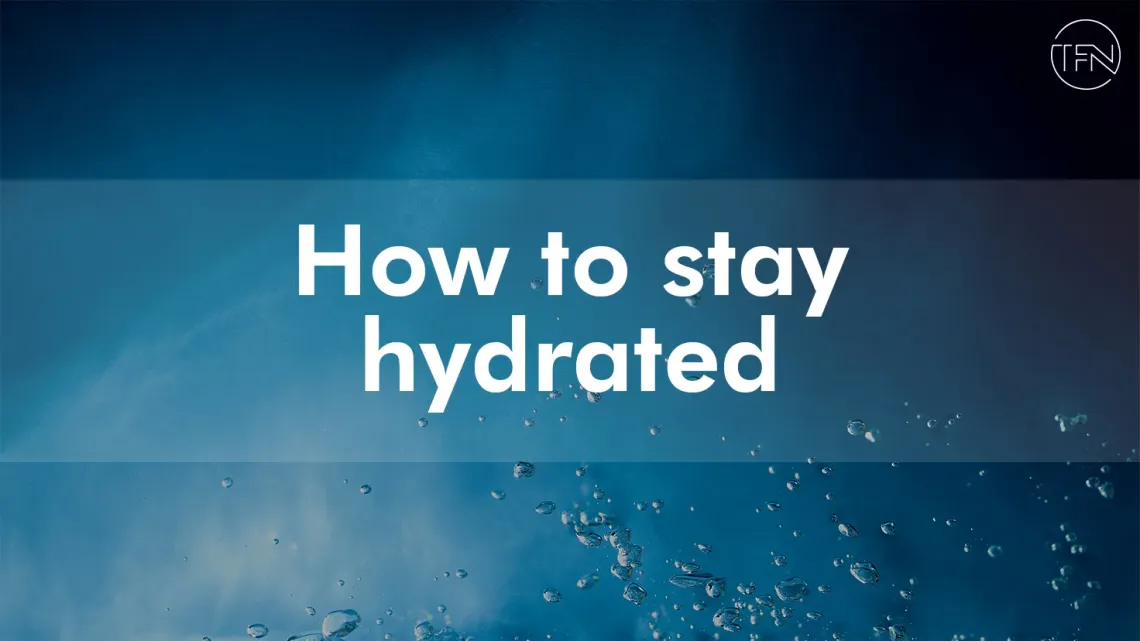When you think about it, staying hydrated is essential for overall health and well-being. Not only does it help to prevent dehydration and other physical problems, but it's also a crucial part of maintaining good cognitive function. One recent study even suggested that low levels of dehydration may increase the risk of dementia. Given the importance of staying hydrated, it's no wonder that so many people struggle to do so regularly. If you frequently have trouble staying hydrated, here are some tips on how to do so.
Why Drink Water?
There are a few reasons why it is important to drink plenty of water throughout the day:
- Drinking plenty of water helps maintain a healthy weight by maintaining fluid balance.
- Water helps to keep muscles and organs functioning properly by providing them with the necessary moisture.
- Water helps cleanse the body of toxins and waste materials, which can improve overall health.
- Hydration can help reduce fatigue and improve moods.
How Much Water Should You Drink per Day?
Drink plenty of water daily to stay hydrated; it's important to avoid drinking too much alcohol and sugary drinks, which can also dehydrate you. The United States Department of Agriculture claims: women should consume 64 ounces (1.9 liters) of fluids daily, while males should consume 88 ounces (2.1 liters).
How to Stay Hydrated on the Go
When traveling, it is important to stay hydrated. Staying hydrated helps keep you energized and focused. There are a few ways to stay hydrated while on the go:
Drink plenty of water – drink at least eight glasses of water per day. This will help maintain your body's normal fluid balance. If traveling in hot climates, increase your intake to 10 or 12 glasses daily.
Bring a travel water bottle – fill up your travel bottle before you leave and take it wherever you go. Carry enough water for the entire day, so you don't have to stop every few hours for a drink.
Stay aware of the signs of dehydration – if you feel thirsty all the time, have a dry mouth, or experience any other symptoms such as lightheadedness, sweating, dizziness, or fainting, you are likely dehydrated. Even if you don't feel like drinking, be sure to hydrate yourself.
Avoid eating salty foods and beverages – these can worsen dehydration. If you eat salty foods and drinks, drink plenty of fluids afterward to help flush out the salt.
Tips for Staying Hydrated at Work
Regarding staying hydrated at work, a few tips can help you stay healthy and alert. First and foremost, drink plenty of fluids throughout the day. This means avoiding sugary drinks, caffeine, and alcohol. If you need to take breaks for fluid intake, make sure to do so between meals rather than during your lunch break or at the end of the day.
Also, be sure to keep a water bottle or canteen with you at all times. Try to go up to two or three hours without drinking some water. You'll not only stay hydrated, but you'll also stay away from headaches, low moods, and dehydration.
Finally, try to drink water before you feel thirsty. Drinking small amounts of water throughout the day will also help you stay hydrated.
Conclusion
Not being hydrated can have a major impact on your health. When you're not properly hydrated, it's easy to feel tired and run down, and even more difficult to stay motivated. By following all the easy tips discussed in this article, you can ensure that you're staying well-hydrated throughout the day.

